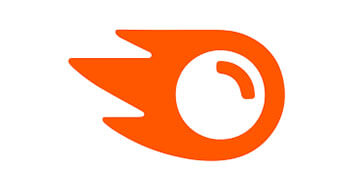
| Starting price | $119.95/mo |
|---|---|
| Pricing model | Per User |
| Free Trial | 7-day |
| Free Version | Yes (limited functionality) |
Make informed business decisions and stay ahead of the competition with the best competitive intelligence software. We share the most powerful tools to help you analyze your competitors, gain market insights and identify new opportunities. We’ll help you find the best competitive intelligence software you need for your business.
Looking for the best competitive intelligence software to help you gain insights into your competitors' strategies? Our experts have identified the best competitive intelligence software solutions on the market today. Find the right competitive intelligence software for your needs.

| Starting price | $119.95/mo |
|---|---|
| Pricing model | Per User |
| Free Trial | 7-day |
| Free Version | Yes (limited functionality) |
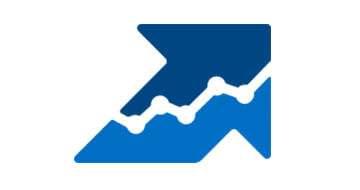
| Starting price | $69/mo |
|---|---|
| Pricing model | Per User |
| Free Trial | No |
| Free Version | Yes |
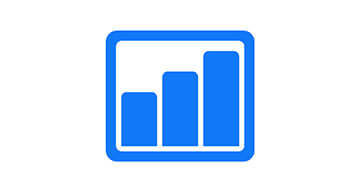
| Starting price | $18.6/mo |
|---|---|
| Pricing model | Per User |
| Free Trial | 14-day |
| Free Version | Yes |
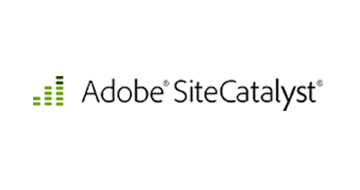
| Starting Price | Contact for price |
|---|---|
| Pricing Model | Subscriber based |
| Free Trial | No |
| Free Version | No |
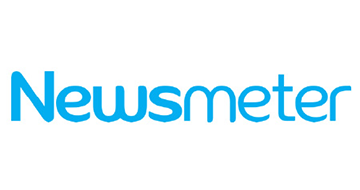
| Starting Price | Contact for price |
|---|---|
| Pricing Model | Per user |
| Free Trial | Yes |
| Free Version | Yes |
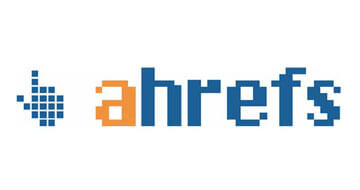
| Starting price | $99/mo + 500 set up fee |
|---|---|
| Pricing model | Per User |
| Free Trial | 7-day Trial for $7 |
| Free Version | No |
Competitive intelligence software empowers organizations to systematically track, analyze, and monitor competitor activities across digital channels. These platforms aggregate data from websites, social media, news sources, patent databases, and market reports to provide comprehensive insights into competitor strategies, product launches, pricing changes, and market positioning.
The primary objective extends beyond simple competitor tracking—these tools transform raw data into actionable intelligence that drives strategic decisions across management, marketing, sales, and product development functions.
Modern competitive intelligence solutions orchestrate complex data collection and analysis workflows through several key processes:
Advanced platforms continuously monitor competitor websites, social media channels, patent filings, regulatory documents, and industry publications. This automated collection ensures your team never misses critical competitor moves or market developments.
Machine learning algorithms process massive datasets to identify patterns, sentiment trends, and strategic shifts that human analysts might overlook. AI-driven tools can transform dark data into strategic insights by analyzing previously ignored information sources.
The most valuable competitive intelligence platforms synthesize collected data into strategic recommendations, helping teams understand the implications of competitor actions and identify optimal response strategies.
Leading competitive intelligence software provides instant alerts when competitors make significant changes to pricing, product offerings, or marketing strategies. Real-time insights are the new competitive advantage for organizations looking to stay ahead of market shifts.
Robust platforms maintain detailed profiles for each tracked competitor, including historical data on pricing changes, product launches, executive movements, and strategic initiatives. This centralized repository enables cross-functional teams to access consistent intelligence without duplicating research efforts.
Sophisticated monitoring systems track branded keywords, industry terminology, and emerging topics relevant to your competitive landscape. These capabilities help identify trending discussions and emerging competitive threats before they impact your market position.
Premium competitive intelligence tools integrate market research capabilities that reveal broader industry trends, customer sentiment shifts, and emerging market opportunities that extend beyond direct competitor analysis.
| Feature Category | Basic Tier | Professional Tier | Enterprise Tier |
|---|---|---|---|
| Competitor Monitoring | 5-10 competitors | 25-50 competitors | Unlimited |
| Real-time Alerts | Email notifications | Multi-channel alerts | Custom alerting rules |
| Data Sources | Web & social media | News, patents, filings | Custom data sources |
| Analysis Tools | Basic reports | AI-powered insights | Advanced analytics |
| Team Collaboration | Individual access | Team dashboards | Organization-wide access |
Competitive intelligence software provides vital insights into customer behavior, industry trends, competitor strategies and future disruptions, enabling leadership teams to make informed decisions quickly. Rather than spending weeks gathering competitor information manually, teams can access comprehensive intelligence instantly.
Organizations using competitive intelligence software gain a deeper understanding of their competitive advantages and market gaps. This intelligence supports more effective positioning strategies and helps identify untapped market segments where companies can establish competitive advantages.
By monitoring competitor pricing strategies, product launches, and marketing campaigns, companies can protect existing revenue streams while identifying new growth opportunities. Early detection of competitive threats allows proactive responses that maintain market share.
Competitive intelligence reveals gaps in competitor offerings, emerging customer needs, and technology trends that inform product roadmap decisions. Teams can prioritize features that differentiate their offerings and avoid investing in capabilities that competitors are abandoning.
SaaS companies, fintech startups, and technology firms operating in rapidly evolving markets benefit significantly from continuous competitive monitoring. These organizations need to track product feature releases, pricing model changes, and go-to-market strategy shifts that could impact their competitive position.
Large B2B companies with complex sales cycles use competitive intelligence to arm sales teams with current competitor information during prospect interactions. Battle cards generated from competitive intelligence platforms help sales representatives handle objections and highlight competitive advantages effectively.
Marketing professionals rely on competitive intelligence to understand competitor content strategies, advertising campaigns, and messaging approaches. Product teams use this intelligence to identify feature gaps and emerging customer requirements.
Management consultants leverage competitive intelligence platforms to rapidly develop market assessments and competitive landscape analyses for client engagements across multiple industries.
Entry-level solutions typically range from US$10 to US$100 per user per month, making competitive intelligence accessible for small and medium-sized businesses. Enterprise-grade platforms with advanced AI capabilities and custom integrations command premium pricing that reflects their comprehensive feature sets.
Freemium and Basic Tiers ($0-$50/month)
Professional Tiers ($50-$200/month)
Enterprise Solutions ($200-$1000+/month)
Organizations typically see positive ROI within 3-6 months through improved competitive positioning, faster strategic decision-making, and reduced research overhead. The time savings alone—converting weeks of manual research into automated intelligence gathering—often justifies the investment for most teams.
These solutions focus on competitor digital marketing activities, including SEO strategies, paid advertising campaigns, content marketing approaches, and social media engagement. They provide insights into competitor keyword rankings, backlink profiles, and advertising spend patterns.
Specialized platforms that monitor competitor pricing across e-commerce, SaaS, and service-based businesses. These tools track dynamic pricing changes, promotional activities, and pricing strategy shifts to inform competitive pricing decisions.
Comprehensive platforms that combine competitive intelligence with broader market research capabilities. These solutions analyze industry trends, regulatory changes, merger and acquisition activities, and macroeconomic factors that impact competitive dynamics.
Tools focused on tracking competitor product development, feature releases, customer feedback, and roadmap signals. These platforms help product teams understand competitive feature gaps and emerging customer requirements.
The rise of conversational interfaces powered by generative AI is transforming how users interact with competitive intelligence platforms. Instead of static dashboards, modern platforms offer chat-based intelligence where users can ask questions in natural language and receive instant answers.
Modern competitive intelligence platforms integrate seamlessly with CRM systems, management software, marketing automation platforms, and business intelligence tools. This integration ensures competitive insights flow directly into existing business workflows and decision-making processes.
At SaaSGenius, our evaluation methodology ensures a comprehensive assessment of competitive intelligence platforms across multiple dimensions critical to business success. Our expert team analyzes each solution’s capabilities, usability, integration options, and value proposition to provide accurate recommendations.
We evaluate data collection breadth, analysis sophistication, real-time monitoring capabilities, and AI/ML integration quality. Platforms must demonstrate comprehensive coverage of relevant data sources and provide actionable insights rather than raw data dumps.
Our assessment includes interface design, learning curve analysis, team collaboration features, and mobile accessibility. The best competitive intelligence software combines powerful capabilities with intuitive user experiences that encourage organization-wide adoption.
We test integration capabilities with popular business applications, API quality, data export options, and scalability across different organizational sizes. Enterprise-ready solutions must support complex deployment scenarios and high-volume data processing requirements.
Our methodology includes pricing transparency assessment, feature-to-cost ratio analysis, and time-to-value evaluation. We consider the total cost of ownership, including implementation, training, and ongoing operational costs, to provide accurate value assessments.
We evaluate customer onboarding processes, documentation quality, technical support responsiveness, and community resources. Premium platforms demonstrate commitment to customer success through comprehensive support ecosystems.
The competitive intelligence software landscape continues evolving rapidly, driven by AI advancement, increasing market competition, and growing recognition of intelligence as a strategic necessity. Organizations that invest in the right competitive intelligence platform gain sustainable advantages through better strategic decision-making, improved competitive positioning, and accelerated market opportunity identification.
Selecting the optimal competitive intelligence software requires careful evaluation of your organization’s specific requirements, competitive landscape complexity, and integration needs. The platforms examined in this analysis represent the current market leaders, each offering unique strengths for different competitive intelligence use cases and organizational requirements.